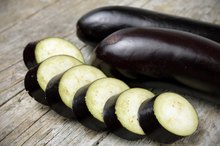What does fact checked mean?
At Healthfully, we strive to deliver objective content that is accurate and up-to-date. Our team periodically reviews articles in order to ensure content quality. The sources cited below consist of evidence from peer-reviewed journals, prominent medical organizations, academic associations, and government data.
The information contained on this site is for informational purposes only, and should not be used as a substitute for the advice of a professional health care provider. Please check with the appropriate physician regarding health questions and concerns. Although we strive to deliver accurate and up-to-date information, no guarantee to that effect is made.
What Causes Cold Chills After Eating?
It's not uncommon to feel a little chilly after eating or drinking cold foods, but severe chills including shivering whenever you eat could indicate an underlying medical condition that needs a doctor’s attention.
Normal Body Temperature
Body temperature naturally varies slightly after eating or drinking, depending on the type and temperature of food. The body conducts heat through its circulatory system, so as blood moves to the digestive system and away from the extremities, so does your body heat. Once digestion begins, body temperature can cool further in response to cold foods, or warm up in response to hot foods. Foods that take more energy to break down, such as protein, will also create body heat as a byproduct of the digestion process.
- Body temperature naturally varies slightly after eating or drinking, depending on the type and temperature of food.
Identification
Thermogenics & Weight Loss
Learn More
Slight variations lasting 30 minutes after eating are normal. But a feeling of cold accompanied by shivering, the body’s muscle spasms used to create heat, could be an indication of a more serious medical condition.
Common Causes
Chills are the body’s natural response to a drop in temperature, which is usually accompanied by fever. Fever can be caused by a variety of infections like the common cold, influenza, or more serious conditions like pneumonia, urinary tract infections or meningitis.
Other Causes
What Does it Mean If You Feel Flushed?
Learn More
Chills after eating can also indicate hypothyroidism, a condition in which the thyroid gland does not produce enough thyroid hormone 1. The thyroid gland controls many of the body’s essential functions, including temperature regulation and metabolism. People with hypothyroidism are extremely sensitive to variations in temperature and particularly intolerant to cold 1. Other symptoms of include:
- weight gain
- low energy
- depression
- hair loss
- brittle hair
- nails
It is diagnosed with a simple blood test and easy to treat with medication, but if left untreated can lead to body system failures or even death.
Warning
If chills are accompanied by heartburn, a cold sweat and chest or upper body pain, it could be the sign of a heart attack and you should seek medical attention immediately.
If eating causes you to experience chills, you should consult your doctor about possible causes, as it could be a symptom of a more serious medical condition.
Related Articles
References
- MedicinePlus Medical Encyclopedia: Hypothyroidism
- MedlinePlus. Chills. Updated January 6, 2020.
- Evans SS, Repasky EA, Fisher DT. Fever and the thermal regulation of immunity: the immune system feels the heat. Nat Rev Immunol. 2015;15(6):335-349. doi:10.1038/nri3843
- MedlinePlus. Fever. Updated January 31, 2020.
Writer Bio
Kelly Christensen has been writing fiction, essays, and articles since she learned to print in 1988. Her work has appeared in "The Manitou Messenger," "Bicycle Paper," and FundsForWriters.com. She received her Bachelor of Arts in English Literature from St. Olaf College.








